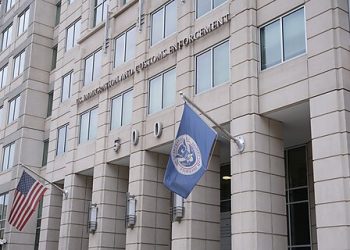Sensitive data includes data that unauthorized parties could use to cause harm to a person or entity if they gain access to the data.
Data owners already know to keep personal information secure simply because it contains identifying information; however, sensitive data goes a step further because it contains details about a person or company that that entity would want to remain private. Here are four entities that deal with sensitive data, and what they do to protect that data.
1. The Healthcare Industry
Information about a person’s health, including any physical or mental health conditions that they have or any medications that they take, is some of the most sensitive data out there. There are many reasons why an individual would want to keep their medical records between themselves and their doctors, with some exceptions for third parties who have a legitimate interest in the information. For example, a lot of stigma remains around mental health conditions like depression and post-traumatic stress disorder, as well as around physical conditions like sexually transmitted diseases.
HIPAA, or the Health Insurance Portability and Accountability Act of 1996, is a law that helps to prevent healthcare workers from releasing sensitive medical information to unauthorized parties. However, HIPAA violations still sometimes occur due to both intentional and unintentional errors. For example, an adult might call a healthcare facility asking for information about a child, and the person answering the call might forget to verify that it is actually the child’s parent or guardian who is calling.
2. The Federal Government
The United States government not only keeps data about certain individuals but also information surrounding vulnerabilities in the military and government agencies. If the government of another country that does not have the United States’ best interests in mind is able to seize that data, that government could cause great harm to the United States. The federal government deals with both classified and unclassified information, and each type contains different levels of sensitivity.
One way that the Department of Defense helps ensure that its data stays secure is by using the Cybersecurity Maturity Model Certification (CMMC) system. CMMC involves government agencies doing everything that they can to maintain their certification and continue working with sensitive government data. Some CMMC compliance software, for instance, is designed for use with controlled unclassified information. People who deal with controlled unclassified information know that while the data is not classified, data owners still need to keep the information secure and comply with certain rules and regulations. When the government fails to safeguard sensitive information, the public can lose confidence in their leaders and the current presidential administration.
3. Colleges and Universities
Like medical data, most people prefer to keep data pertaining to their education private. Educational data can include grades, grade point averages, class schedules and any scholarships or other financial assistance that a student receives to help them pay for school.
The Family Educational Rights and Privacy Act (FERPA) protects students from having colleges and universities release certain data points related to their education. For example, a professor cannot release the pass/fail status of a student to their parent or guardian, even if the parent or guardian is the one paying for the student’s education. Institutions of higher learning want the best and brightest students to enroll; however, if an institution has to withstand the negative publicity that stems from a large data breach, it may cause potential candidates to apply elsewhere.
4. The Financial Services Industry
The financial services industry includes banks, insurance companies and wealth management firms. This industry is a target for those looking to steal money, and as such, financial services companies need to stay especially vigilant about protecting the data that they store about clients.
Encryption is one of the methods that this industry uses to help protect customer information. Encryption renders a transaction between a customer and their financial institution only readable to the parties involved in the transaction. This makes it much more difficult for a bad actor to read a customer’s financial information and use that information to steal from the customer.
Anyone who has a stake in one of these four industries should be aware of the importance of protecting sensitive data.
Read more:
4 Entities That Deal With Sensitive Data and How They Protect It
















